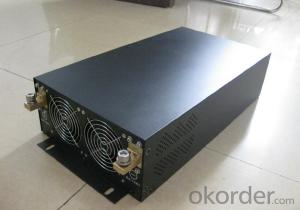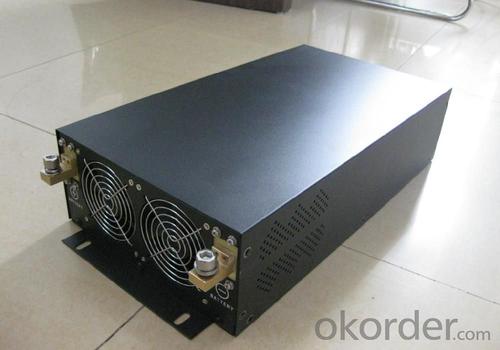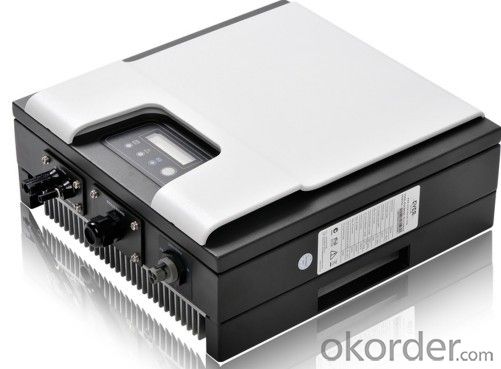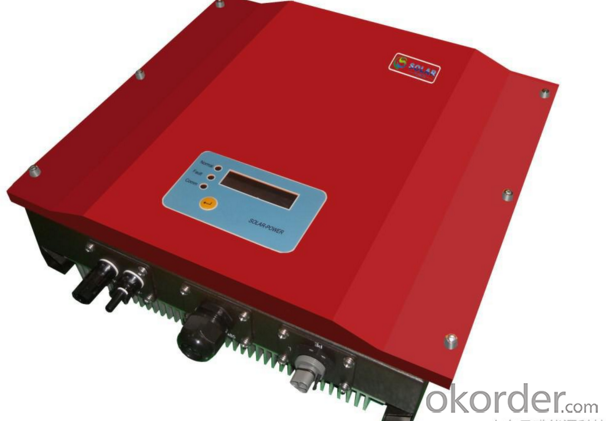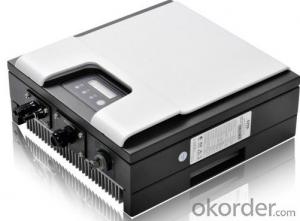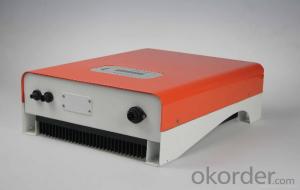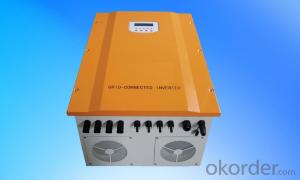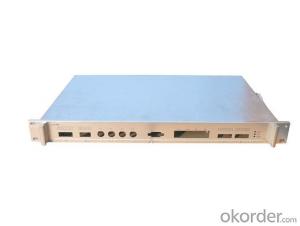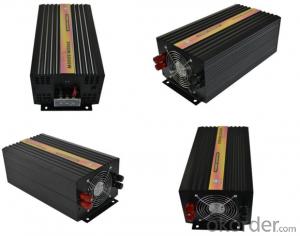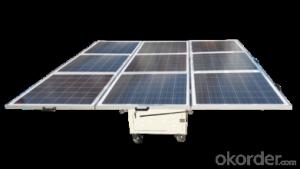Solar Inverter - 3 Phase Inverter Second Generation 4k Solar Inverter Made in China
- Loading Port:
- Shanghai
- Payment Terms:
- TT OR LC
- Min Order Qty:
- 0 watt
- Supply Capability:
- 10000 watt/month
OKorder Service Pledge
OKorder Financial Service
You Might Also Like
Description of Three Phase Inverter Second Generation 4k Solar Inverter
Solar ac power system consists of solar panels, charge controllers, inverter and battery; Solar energy does not include inverter dc power system. Inverter is a kind of power conversion device, inverter by incentives can be divided into self-excited oscillation inverter and separately excited oscillation inverter.
Features of Three Phase Inverter Second Generation 4k Solar Inverter
Standard 10 years warranty, 5-15 years optional
Built-in Gprs as option
Built-in Wifi as option
Smaller and lighter, only 18kg
High performance DSP for algorithm control
VDE-AR-N 4105 certification
New topology design
Dual MPPT design
Multi-button touch interface
LCD screen visible at night
Have anti-shading function
Advantages of Three Phase Inverter Second Generation 4k Solar Inverter
Longer life cycle
Plug and play
Free monitoring through our webportal
Very lower internal temperature
Easy transportation and installation
Faster CPU speed
Adjustable active and reactive power
Maximum conversion effciency up to 98.3%,Euro up to 97.7%
More flexible system design
User friendly operation
Technical Data of Three Phase Inverter Second Generation 4k Solar Inverter
| Type | Omniksol-4k-TL2-TH |
| Input(DC) | |
| Max.PV Power | 4150W |
| Max,DC Voltage | 1000V |
| Nominal DC Voltage | 640V |
| Operating MPPT Voltage Range | 150-800V |
| MPPT Voltage Range at Nominal Power | 200-800V |
| Start up DC Voltage | 250V |
| Turn off DC Voltage | 150V |
| Max, DC Current(A/B) | 14A/14A |
| Max, Short Cicuit Current for each MPPT | 20A/20A |
| Number of MPP trackers | 2 |
| Number of DC Connection | A:2/B:2 |
| DC Connection Type | MC4 connector |
| Output(AC) | |
| Max,AC Apparent Power | 4000VA |
| Nominal AC Power (cos phi = 1) | 4000W |
| Nominal Grid Voltage | 220V/230V/240V |
| Nominal Grid Frequency | 50Hz/60Hz |
| Max, AC Current | 6.1A |
| Grid Voltage Range** | 185-276V |
| Grid Frequency Range** | 45-55Hz/55-65Hz |
| Power Factor | 0.9 capacitive... 0.9 inductive |
| Total Harmonic Distortion(THD) | <2% |
| Feed in Starting Power | 30W |
| Night time Power Consumption | <1W |
| Standby Consumption | <10W |
| AC Connection Type | Plug-in connertor |
| Efficiency | |
| Max,Efficiency | 98.0% |
| Euro Efficiency | 97.5% |
| MPPT Efficiency | 99.9% |
| Safety and Protection | |
| DC Insulation Monitoring | Yes |
| DC Switch | Optional |
| Residual Current Monitoring Unit (RCMU) | Integrated |
| Grid Monitoring with Anti-islanding | Yes |
| Electricity Fuse Protection | Yes |
| Protection Class | Ⅰ(According to IEC 62103) |
| Overvoltage Category | PVⅡ/Mains Ⅲ(According to IEC 62109-1) |
| Reference Standard | |
| Safety Standard | EN 62109, AS/NZS 3100 |
| EMC Standard | EN 6100-6-1, EN 6100-6-2, EN 6100-6-3 EN 6100-6-4, EN 6100-3-2, EN 6100-3-3 |
| Grid Standard | VDE-AR-N4105. VDE-0126-1-1,G83/1,EN 50438,RD1699,CEI 0-21, AS4777,C10/C11 |
| Physical Structure | |
| Dimensions | 352x421x154.5mm |
| Weight | 18kg |
| Environmental Protection Rating | IP 65 (According to IEC 60529) |
| Cooling Concept | Natural convection |
| Mounting Information | Wall bracket |
| General Data | |
| Operating Temperature Range | -25℃ to +60℃(derating above 45℃) |
| Relative Humidity | 0% to 98%, no condensation |
| Max. Altitude (above sea level) | 2000m |
| Noise Type | <40dB |
| Isolation Type | Transformerless |
| Display | 20 x 4 LCD (800x480 TFT Graphic Display optional) |
| Data Communication | RS485(WiFi, GRPS optional) |
| Computer Communication | USB |
| Standard Warranty | 10 Years (5-15 years optional) |
IMages of Three Phase Inverter Second Generation 4k Solar Inverter
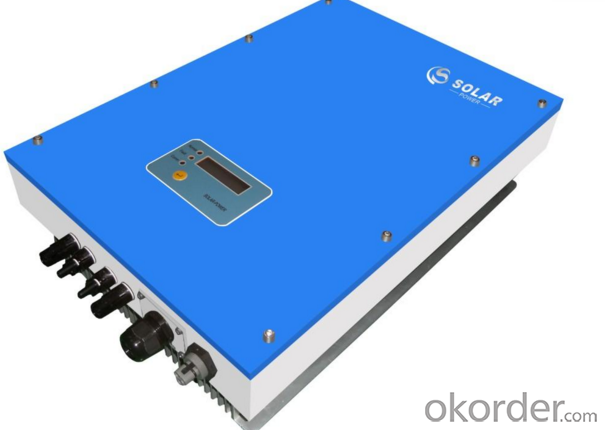
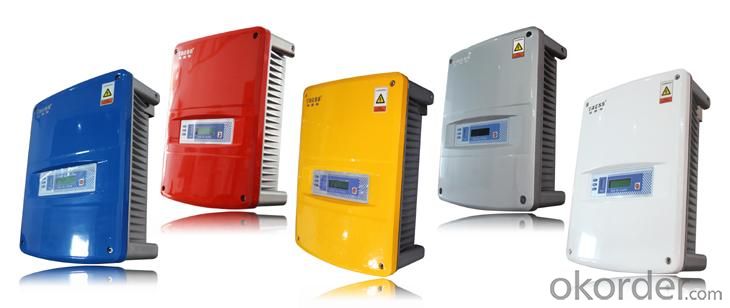
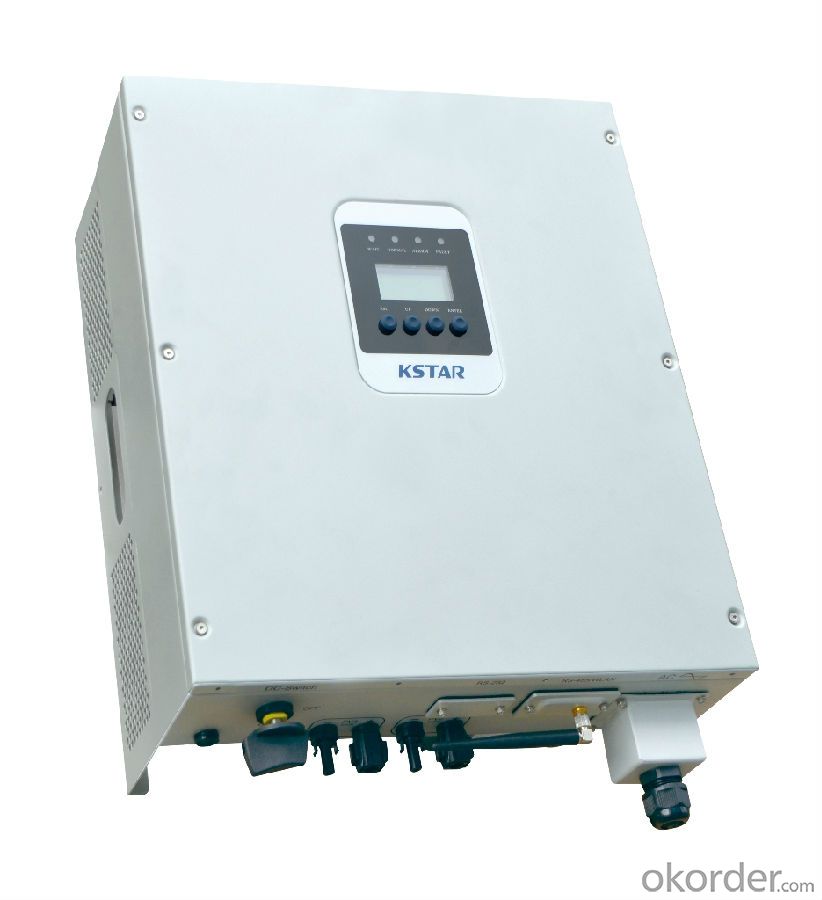
FAQ
Q: Do you have the CE, TUV, UL Certification?
A: We’ve already passed all the tests, and any certificate is available.
Q: Have you ever sold your products to companies in my country?
A: Of course, we have customers in all general PV markets, but I think we should expand our market share along with the market growth.
Q: When did your company set up? You are a new company, how can I believe your quality?
A: We entered into Solar PV industry in 2005, now we have several plants in manufacturing of a-Si and c-Si panels, and our capacity is 220MW per year. Till now we have already passed all the tests by authorized laboratories, e.g. TUV, CE, UL.
Q: Can you help us install the module if we cooperate with you?
A: We haven’t entered into installation sector, but we have the plan in near future.
Q: How do you pack your products?
A: We have rich experience on how to pack the panels to make sure the safety on shipment when it arrives at the destination.
Q: Can you do OEM for us?
A: Yes, we can.
Q: Can we visit your factory?
A: Surely, I will arrange the trip basing on your business schedule.
- Q: Can a solar inverter be used for off-grid systems?
- Yes, a solar inverter can be used for off-grid systems. Off-grid systems are not connected to the utility grid and rely solely on renewable energy sources like solar panels. A solar inverter converts the direct current (DC) generated by the solar panels into alternating current (AC) which can be used to power appliances and devices in an off-grid system.
- Q: How do you choose the right size of solar inverter for a solar power system?
- To choose the right size of solar inverter for a solar power system, you need to consider two main factors: the total power output of your solar panels and the maximum power consumption of your household or facility. First, calculate the total wattage of your solar panels by summing up the individual panel ratings. Then, assess your power consumption by considering the peak load requirements or the average daily consumption. Match the inverter's capacity to the higher value among these two factors to ensure efficient energy conversion. It is also recommended to consult with a professional solar installer to ensure the correct sizing of the inverter based on your specific needs.
- Q: Can a solar inverter be used in a three-phase power system?
- Yes, a solar inverter can be used in a three-phase power system. In fact, three-phase solar inverters are commonly used in commercial and industrial applications where three-phase power is utilized. These inverters convert the DC power generated by solar panels into AC power that can be seamlessly integrated into the three-phase power grid.
- Q: How do you connect solar panels to a solar inverter?
- To connect solar panels to a solar inverter, you need to follow a few steps. First, ensure that the solar panels are properly installed and positioned to receive maximum sunlight. Then, connect the positive and negative terminals of each solar panel in series or parallel, depending on the system design. Next, connect the positive and negative terminals of the solar panel array to the input terminals of the solar inverter. Finally, double-check all connections and wiring to ensure they are secure and tight.
- Q: Are there any government incentives for installing a solar inverter?
- Yes, there are government incentives for installing a solar inverter. Many countries offer financial incentives such as tax credits, grants, or rebates to encourage the adoption of renewable energy technologies like solar inverters. Additionally, some regions may have specific programs or initiatives that provide additional support or incentives for solar inverter installations. It is advisable to research and consult with local authorities or renewable energy organizations to determine the specific incentives available in your area.
- Q: Can a solar inverter be used in systems with different module efficiencies?
- Yes, a solar inverter can be used in systems with different module efficiencies. Solar inverters are designed to convert the DC power generated by solar panels into AC power, regardless of the module efficiency. The inverter's main function is to optimize the power conversion process and ensure compatibility between the solar panels and the electrical grid. As a result, it can accommodate varying module efficiencies and still function efficiently.
- Q: What are the signs of a faulty solar inverter?
- Some signs of a faulty solar inverter include a sudden decrease in energy production, frequent system shutdowns or restarts, unusual noises coming from the inverter, error messages or warning lights displayed on the inverter, and a lack of communication between the inverter and monitoring devices.
- Q: How does a solar inverter handle electromagnetic interference?
- A solar inverter handles electromagnetic interference by utilizing filters and shielding techniques to minimize the impact of external electromagnetic disturbances. These measures help ensure that the inverter operates efficiently and reliably, without any significant disruption caused by electromagnetic interference.
- Q: Generally a large grid-connected photovoltaic power plant will have several inverters
- Group is the use of a number of grid-connected inverter and grid-connected AC power grid, the advantage is the loss of small, low cost of the cable (because the PV cable is more expensive), eliminating the cost of the convergence box, and multiple
- Q: How does a solar inverter handle voltage flicker in the grid?
- A solar inverter handles voltage flicker in the grid by continuously monitoring the grid voltage. When it detects a flicker, it adjusts its output power accordingly to stabilize the voltage and maintain a consistent power supply to the connected loads. This helps prevent disruptions and ensures a smooth operation of the grid.
Send your message to us
Solar Inverter - 3 Phase Inverter Second Generation 4k Solar Inverter Made in China
- Loading Port:
- Shanghai
- Payment Terms:
- TT OR LC
- Min Order Qty:
- 0 watt
- Supply Capability:
- 10000 watt/month
OKorder Service Pledge
OKorder Financial Service
Similar products
Hot products
Hot Searches
Related keywords
